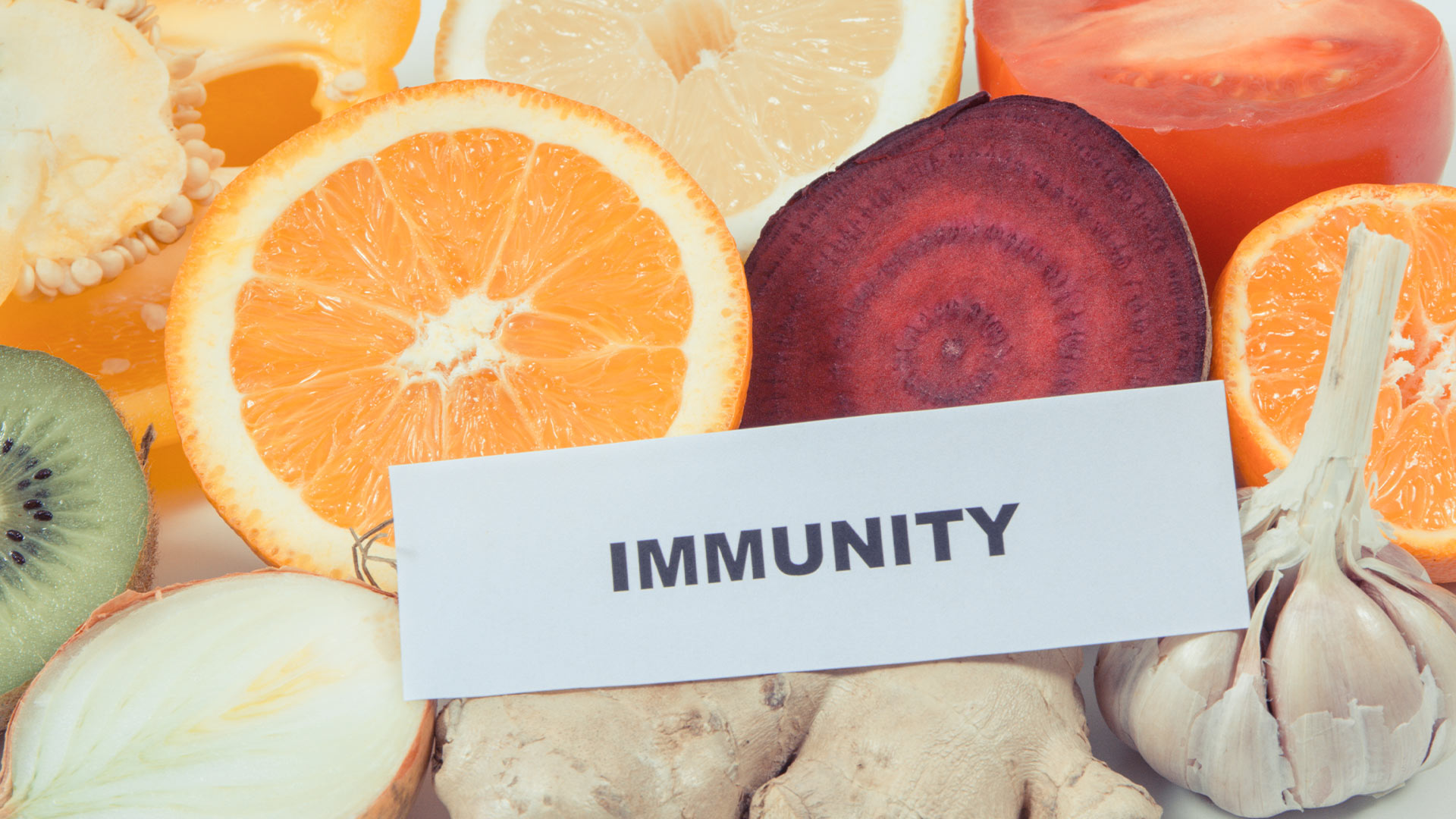The Link Between Immunity and Aging: Boosting Your Immune System to Stay Youthful
Preventive care is the best approach to maintaining your health as you age. The stronger your immune system, the better you’ll feel, and the more you’ll be able to enjoy all the vitality that comes with a healthy, aging body.

As we age, our bodies naturally undergo a variety of changes, many of which affect our immune system. A strong immune system helps protect us from illness, keeps our energy levels up, and supports overall health. But as we get older, our immune system becomes less efficient, making us more vulnerable to infections, chronic diseases, and even age-related conditions.
The good news is that by taking proactive steps to boost and maintain your immune system, you can stay healthier, more energetic, and age more gracefully. In this article, we’ll explore how immunity and aging are connected, and the steps you can take to support a youthful and resilient immune system.
How Aging Affects the Immune System
The immune system is a complex network of cells, tissues, and organs that work together to defend the body against harmful invaders like bacteria, viruses, and other pathogens. As we age, however, the immune system undergoes several changes that can weaken its response to these threats:
1. Immunosenescence
Immunosenescence refers to the gradual deterioration of the immune system that occurs as we age. This process includes a decline in the production of immune cells, such as T-cells and B-cells, which play a key role in identifying and attacking pathogens. As a result, older adults may have a less effective immune response and may be more susceptible to infections, autoimmune diseases, and even certain cancers.2. Inflammaging
Another term related to aging and immunity is inflammaging, which refers to the chronic low-grade inflammation that increases with age. This persistent inflammation can damage tissues, promote the development of chronic diseases (such as cardiovascular disease and diabetes), and accelerate the aging process. It’s thought to be caused by a combination of factors, including immune system changes and environmental stressors.3. Slower Response to Vaccines
As we age, our bodies respond more slowly to vaccines and other immune challenges. Older adults may not mount as strong of an immune response after receiving vaccines, making them more vulnerable to preventable illnesses like the flu, pneumonia, and shingles. This highlights the importance of staying up-to-date on vaccines as you age.How a Strong Immune System Helps You Age Gracefully
A healthy, well-functioning immune system plays a significant role in maintaining overall health as you age. Here’s how a robust immune system supports youthful aging:
1. Fighting Infections and Illnesses
A strong immune system helps you avoid getting sick and recover quickly if you do become ill. By preventing frequent infections, a healthy immune system ensures that you don’t have to deal with the lingering fatigue and discomfort that can come with illnesses, which can slow down your activities and make you feel older.2. Reducing Chronic Inflammation
As mentioned earlier, chronic inflammation is a key driver of aging and age-related diseases. By boosting your immune system’s ability to regulate inflammation, you can reduce the risk of developing inflammatory diseases like heart disease, arthritis, and diabetes. Keeping inflammation under control also helps preserve your skin’s youthful appearance, reducing the risk of wrinkles and sagging.3. Supporting Healthy Aging
Your immune system plays a role in tissue repair and regeneration, which is important as you age. A healthy immune system helps your body repair damaged cells and tissues, keeping your organs and muscles functioning optimally. It also helps maintain a healthy balance of gut bacteria, which plays a major role in overall health, including digestion, immunity, and even mental health.4. Improving Mental Health
There’s increasing evidence that the immune system is closely connected to mental health. Chronic inflammation and immune dysregulation are associated with mood disorders, cognitive decline, and conditions like depression and anxiety. A strong immune system helps maintain brain health by reducing inflammation and supporting neuroprotection, which can help prevent cognitive decline and promote mental clarity as you age.How to Boost Your Immune System for Youthful Aging
The good news is that there are several natural ways to boost and support your immune system as you age. By adopting healthy lifestyle habits and making smart choices, you can strengthen your immunity and promote overall vitality. Here are some key strategies for boosting your immune system and staying youthful:
1. Eat a Nutrient-Rich Diet
A healthy diet is essential for a strong immune system. Focus on foods that are rich in vitamins, minerals, and antioxidants, which help fight inflammation and support immune function. Some immune-boosting foods include:
- Vitamin C-rich foods: Citrus fruits, berries, bell peppers, and broccoli are great sources of vitamin C, which helps enhance the immune response. - Zinc-rich foods: Oysters, nuts, seeds, and legumes provide zinc, a mineral that plays a crucial role in immune function. - Healthy fats: Omega-3 fatty acids, found in fatty fish, flaxseeds, and walnuts, help reduce inflammation and promote overall immune health. - Probiotic-rich foods: Yogurt, kefir, and fermented foods help support gut health, which is closely linked to immunity.
Real Example: Gisele Bündchen, known for her health-conscious lifestyle, often shares how she includes immune-boosting foods in her daily diet. She credits her diet for helping her maintain both her health and youthful appearance.
2. Exercise Regularly
Regular physical activity is one of the best ways to keep your immune system in tip-top shape. Exercise increases blood circulation, which helps immune cells travel through the body and respond to threats more efficiently. Moderate exercise, such as walking, swimming, or yoga, is particularly beneficial for boosting immunity.
Exercise also reduces stress hormones, improves sleep, and helps maintain a healthy weight, all of which contribute to better immune function.
Real Example: Michelle Obama has long been an advocate for exercise, emphasizing its importance in maintaining both physical and mental health. Her daily exercise routine has helped her maintain high energy levels and keep her immune system strong.
3. Get Enough Sleep
Sleep is essential for a healthy immune system. During sleep, your body produces important immune cells and cytokines, which help fight off infections. A lack of sleep can impair immune function and increase the risk of illness. Aim for 7–9 hours of quality sleep each night to allow your immune system to function properly.
To improve sleep quality, create a relaxing bedtime routine, limit screen time before bed, and ensure your sleep environment is comfortable and free of distractions.
4. Manage Stress
Chronic stress is one of the biggest disruptors of immune function. High levels of cortisol (the stress hormone) can impair immune response and increase inflammation, leading to a weakened immune system. Incorporating stress-management techniques like meditation, deep breathing, yoga, or spending time in nature can help reduce cortisol levels and support immune health.
Real Example: Oprah Winfrey is well-known for her mindfulness practices, including meditation and journaling. She credits these stress-reducing activities with helping her maintain balance and positivity, while also boosting her immune system.
5. Stay Hydrated
Drinking plenty of water is vital for overall health, including immune function. Hydration helps flush out toxins from the body and ensures that the cells in your immune system function properly. Aim to drink at least 8 glasses of water a day, and more if you’re physically active or in a hot climate.


